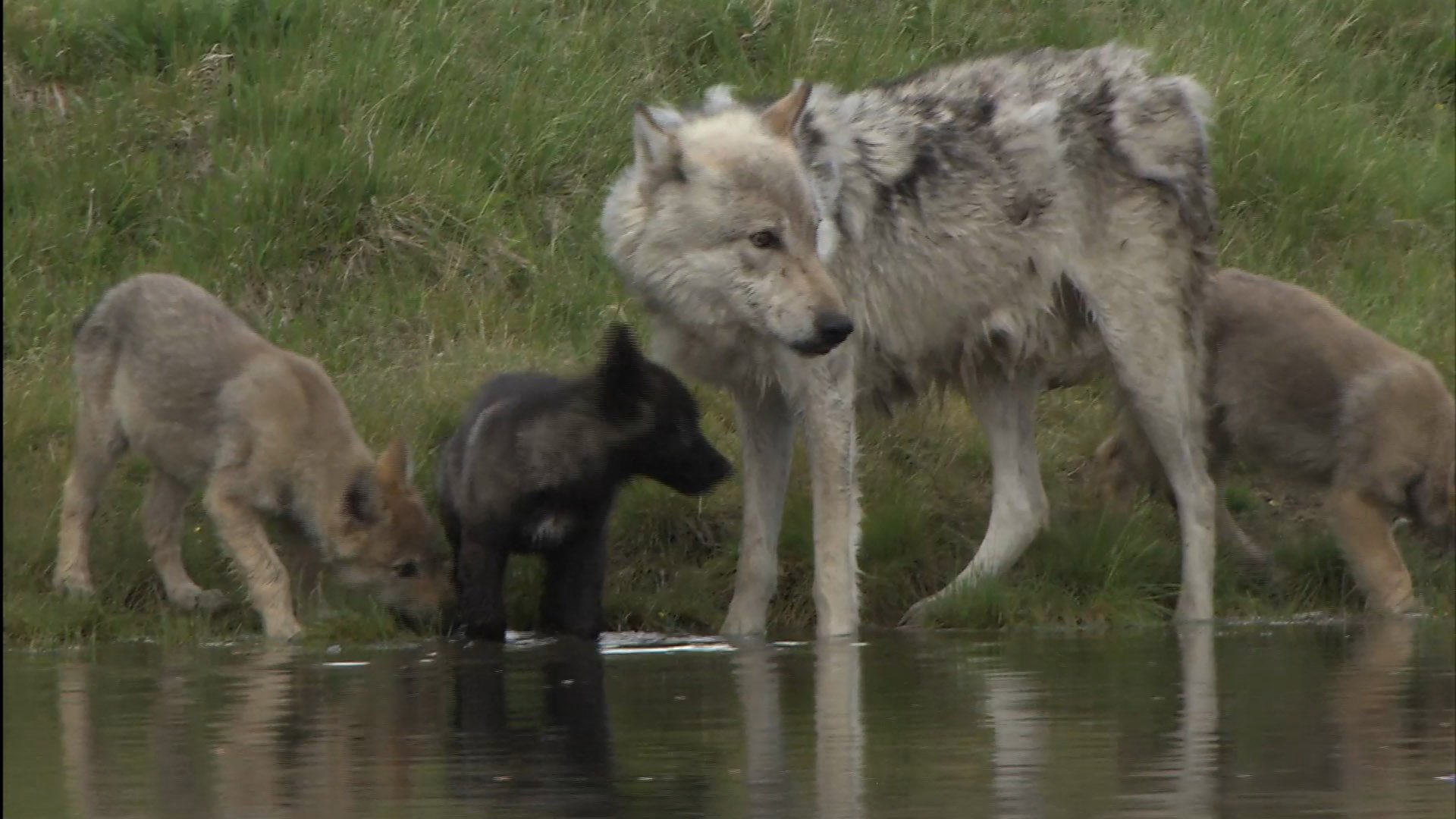Gray Wolves in the Northern Rockies Denied Federal Protections
The setback has alarmed conservationists who say that without protection wolves could now be pushed closer to extinction by trophy hunters and trappers.
Wild wolves in the United States. Credit: Bob Landis
In a devastating blow to conservation efforts, gray wolves in the Northern Rocky Mountains will not be relisted under the Endangered Species Act, the U.S. Fish and Wildlife Service announced today.
Advocacy groups including the Humane Society of the United States (HSUS), the Center for Biological Diversity, and Species Unite had been calling for federal protections to be immediately restored to wolves in the Northern Rockies.
Campaigners argue that without such protection, current state laws would continue to enable trophy hunters, trappers, and predator control agents to kill wolves and push the population closer to extinction.
But now, following a status review of wolf populations in the area that began back in September 2021, the Fish and Wildlife Service has decided against listing the iconic residents of the Rocky Mountains as “Endangered”.
“The U.S. Fish and Wildlife Service’s decision to stand by and do nothing while wolves in Northern Rockies states are pushed to the brink of extinction once again is reprehensible,” said Nicholas Arrivo, managing attorney for wildlife at HSUS. “ The agency is essentially turning their backs on wolves.”
The War on Wolves Continues
This ruling is being seen as the latest attack on gray wolves in America, as the species increasingly faces harsher laws that seek to limit populations.
Credit: Bob Landis
While there are federal protections in 44 states, the Northern Rockies - where 80 percent of wolf slaughter occurs - remain unprotected. And in Montana, Idaho, and Wyoming, efforts to decimate wolf populations continue to grow.
To help bolster its wolf-killing laws, Idaho’s Fish and Game Commission approved a new wolf management plan last year that aims to cut the state’s wolf population by 60 percent by 2028. Numbers will primarily be lowered by giving incentives - known as reimbursements or bounties - to trophy hunters and trappers, despite the fact that individuals can already kill an unlimited number of wolves.
In Idaho alone, over 560 wolves were killed in 2022 and 2023 by hunters and trappers.
Meanwhile Montana is also reportedly considering a similar wolf management plan that will aim to reduce its wolf population and promote wolf-killing measures.
Credit: Bob Landis
The widespread killing of wolves not only puts the species at risk of extinction, but conservationists say that killing methods are incredibly cruel too.
In Idaho for example, hunters can kill wolves by chasing them down with hounds and all-terrain vehicles, while in Montana strangulation snares can be used on both private and public land.
The ramping up of wolf killings goes against former government-run conservation efforts, with decades of taxpayer-funded wolf recovery efforts effectively being erased.
“Unlike the Service, we won’t stand idly by and watch as northern Rockies wolves are slaughtered year after year,” said Kristine Akland, northern Rockies program director at the Center for Biological Diversity. “Wolves are an invaluable part of their ecosystems and deserve strong federal protections.”
The Center says that is now considering a legal challenge to the Fish and Wildlife Service over the denial of federal protections for gray wolves.
After this setback, wolves now need our help more than ever. Species Unite refuses to give up for wolves who are being pushed to the brink of extinction. Join our campaign and send a letter to Secretary Deb Haaland, urging her to reconsider and reinstate protections for wolves in the Northern Rockies. Send the letter here.
We Have A Favor To Ask…
Species Unite amplifies well-researched solutions to some of the most abusive animal industries operating today.
At this crucial moment, with worldwide momentum for change building, it’s vital we share these animal-free solutions with the world - and we need your help.
We’re a nonprofit, and so to keep sharing these solutions, we’re relying on you - with your support, we can continue our essential work in growing a powerful community of animal advocates this year.






From an owl who taught a city how to hope, to the fight to restore collapsing kelp forests, to the urgent push for justice for animals harmed by human systems - these are the stories behind Species Unite’s most listened-to podcast episodes of 2025.